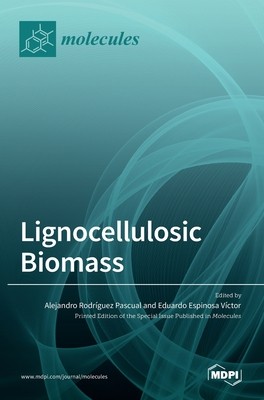
- We will send in 10–14 business days.
- Publisher: MDPI AG
- ISBN-10: 3036524754
- ISBN-13: 9783036524757
- Format: 17 x 24.4 x 2.7 cm, hardcover
- Language: English
- SAVE -10% with code: EXTRA
Lignocellulosic Biomass (e-book) (used book) | bookbook.eu
Reviews
Description
Recently, there has been a growing awareness of the need to make better use of natural resources. Hence, the utilization of biomass has led to so-called biorefinery, consisting of the fractionation or separation of the different components of the lignocellulosic materials in order to achieve a total utilization of the same, and not only of the cellulosic fraction for paper production. The use of plant biomass as a basic raw material implies a shift from an economy based on the exploitation of non-renewable fossil fuels, with limited reserves or with regeneration cycles far below the rates of exploitation, to a bioeconomy based on the use of renewable organic natural resources, with balanced regeneration and extraction cycles. To make this change, profound readjustments in existing technologies are necessary, as well as the application of new approaches in research, development, and production. "Biorefinery" is the term used to describe the technology for the fractionation of plant biomass into energy, chemicals, and consumer goods. The future generation of biorefinery will include treatments, leading to high-value-added compounds. The use of green chemistry technologies and principles in biorefineries, such as solvent and reagent recovery and the minimization of effluent and gas emissions, is essential to define an economically and environmentally sustainable process. In particular, the biorefinery of lignocellulosic materials to produce biofuels, chemicals and materials is presented as a solid alternative to the current petrochemical platform and a possible solution to the accumulation of greenhouse gases.
EXTRA 10 % discount with code: EXTRA
The promotion ends in 16d.05:58:29
The discount code is valid when purchasing from 10 €. Discounts do not stack.
- Publisher: MDPI AG
- ISBN-10: 3036524754
- ISBN-13: 9783036524757
- Format: 17 x 24.4 x 2.7 cm, hardcover
- Language: English English
Recently, there has been a growing awareness of the need to make better use of natural resources. Hence, the utilization of biomass has led to so-called biorefinery, consisting of the fractionation or separation of the different components of the lignocellulosic materials in order to achieve a total utilization of the same, and not only of the cellulosic fraction for paper production. The use of plant biomass as a basic raw material implies a shift from an economy based on the exploitation of non-renewable fossil fuels, with limited reserves or with regeneration cycles far below the rates of exploitation, to a bioeconomy based on the use of renewable organic natural resources, with balanced regeneration and extraction cycles. To make this change, profound readjustments in existing technologies are necessary, as well as the application of new approaches in research, development, and production. "Biorefinery" is the term used to describe the technology for the fractionation of plant biomass into energy, chemicals, and consumer goods. The future generation of biorefinery will include treatments, leading to high-value-added compounds. The use of green chemistry technologies and principles in biorefineries, such as solvent and reagent recovery and the minimization of effluent and gas emissions, is essential to define an economically and environmentally sustainable process. In particular, the biorefinery of lignocellulosic materials to produce biofuels, chemicals and materials is presented as a solid alternative to the current petrochemical platform and a possible solution to the accumulation of greenhouse gases.


Reviews